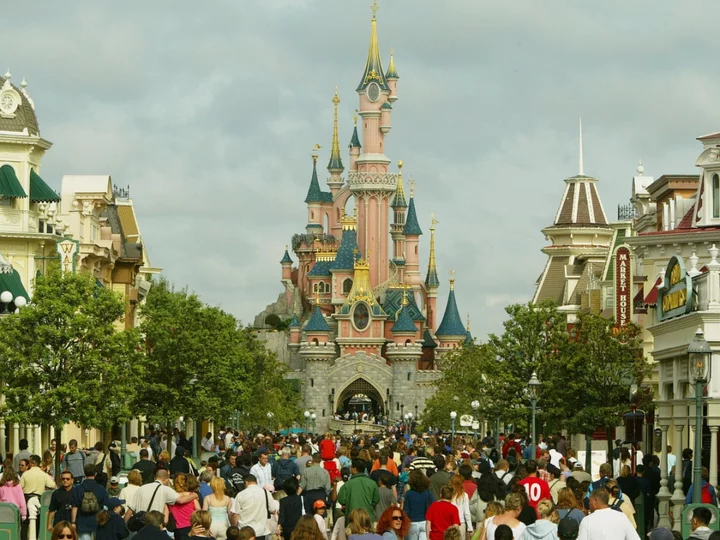
Train accidentally takes EU politicians to Disneyland because of signalling error
A train heading to Strasburg carrying hundreds of members and staff of the European Parliament ended up at Disneyland Paris on Monday after taking the wrong turn. The special train - which costs £90million a year to run - is chartered once a month to get European officials between parliaments in Brussels and Strasbourg. However, a signalling error on Monday meant that MEPs briefly ended up with a view of Disney princesses and animated attractions. After departing from Brussels, the train left Charles de Gaulle Airport and headed towards Disneyland because of the error. Officials on the train were told that the diversion was due to an “error in the route” and were quick to make light of their predicament on social media. German MEP, Daniel Freund joked on X: “We are NOT a Mickey Mouse Parliament.” Another Dutch lawmaker, Samira Rafaela, wrote “Team Disneyland”, in a photo posted on social media. Unfortunately, the stopover at Disneyland was not long enough for the MEPs to enjoy themselves at the theme park, as the delay was only 45 minutes. SNCF Networks, the railway company who charter the train, said the cause was a signalling error at the Roissy Charles-de-Gaulle TGV station. It apologised for the inconvenience, noting that the diversion caused only a 45-minute delay. “The passengers arrived at their destination at 12.50pm,” it told AFP news. It was eventually put back on to the correct track for Strasbourg. Read More Tell us if you think price is the biggest problem with electric cars EU to investigate X’s handling of disinformation over Hamas attack on Israel Electric cars will cost drivers £6,000 more if Sunak fails to get Brexit deal with EU
1970-01-01 08:00

Nomura Lays Off About 20 Staffers After Review of Markets Unit
Nomura Holdings Inc. is cutting roughly 20 staffers following a review of the firm’s markets and investment banking
1970-01-01 08:00
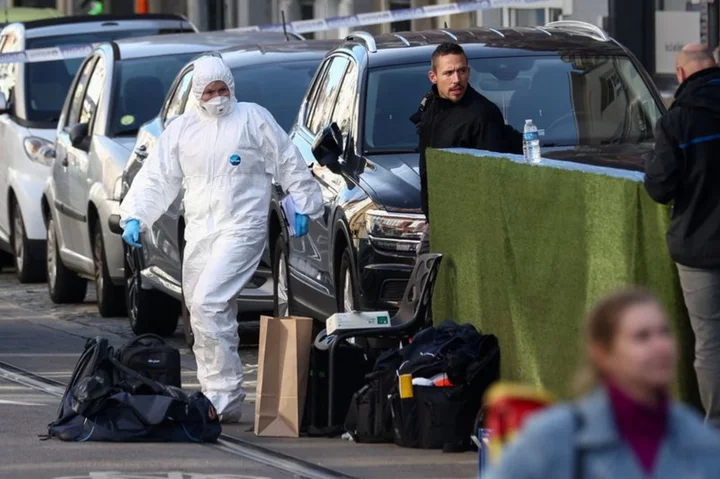
Analysis-Brussels attack underlines challenges for new EU migration pact
By Gabriela Baczynska and Alvise Armellini BRUSSELS/ROME A deadly Islamist attack in Belgium by a rejected asylum-seeker from
1970-01-01 08:00
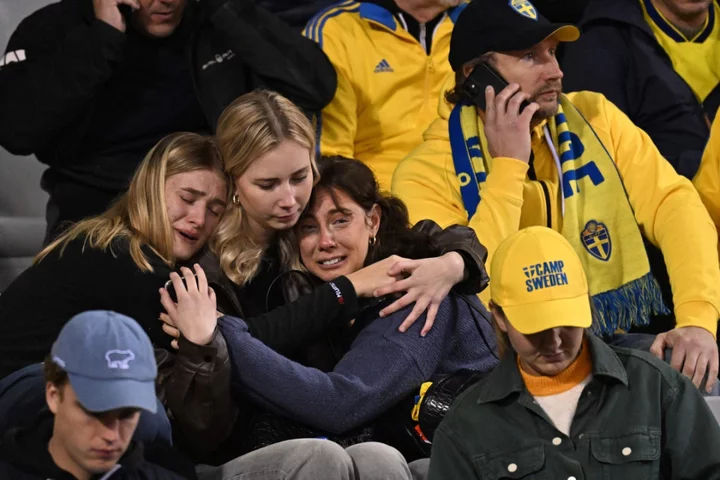
Sweden’s PM issues warning to all nationals abroad after Brussels terror attack
The killing of two Swedish citizens in an attack ahead of a football match in Brussels has shocked the country, although the government has been warning for months that Swedes were at greater risk since a recent string of public desecrations of the Quran holy book by a handful of anti-Islam activists. Swedish prime minister Ulf Kristersson on Tuesday noted that the government in August had raised the terror alert to the second-highest level following threats against Sweden by Islamic extremists. “Now we know with chilling clarity that there were grounds for those concerns,” he said. The desecrations, primarily by an Iraqi refugee living in Sweden, have sparked angry reactions in Muslim countries. In June, demonstrators in Iraq stormed the Swedish Embassy and the Iraqi government cut off diplomatic relations with Sweden. Now Swedish nationals have been urged to remain vigilant after the gunman opened fire and killed two Swedes in Brussels, with a third victim seriously injured. Mr Kristersson said he had been told by Belgium that the perpetrator “had stayed in Sweden but was not known to the Swedish police”. The European Union’s passport-free zone allowed him to travel to Sweden. The PM has called on the EU to bolster border controls and internal security, while Swedes abroad have been encouraged to download the UD Resklar app to receive updated safety alerts. The attack unfolded at 7pm when a man, who named himself in a video as Abdesalem Lassoued, opened fire in the north of the city centre. Videos shared online showed a man on a scooter, dressed in an orange fluorescent jacket, pull up and start shooting passers-by. He then chases people into the hallway of an apartment building to gun them down while four gunshots can be heard. A major manhunt was launched, with the perpetrator eventually tracked down to a cafe in Schaerbeek, after a witness recognised him and contacted the police. He was shot and later died of his injuries, with the interior minister Annelies Verlinden posting on Twitter/X, that “The perpetrator of the terrorist attack in Brussels has been identified and has died.” The gunman, who named himself in a video as Abdesalem Lassoued, is believed to be a Tunisian man who was in Belgium illegally after his asylum application was rejected in 2020. He posted a video online saying he had killed people in the name of God, with the Belgian prosecutor’s office stating their belief he was inspired by Isis. While they initially said there did not appear to be any links between the attack and the Israel-Gaza war, they later said they could not exclude that possibility. Belgium prime minister Alexander De Croo called Monday’s shooting “a harrowing act of terrorism” in a press conference, while it is believed the victims were probably targeted because they were Swedish. The attack occurred three miles away from the stadium where Belgium was playing Sweden to qualify for the Euro 2024 football tournament. Following news of the attack, the match was abandoned at half time while 35,000 fans had to wait for hours in the King Baudouin stadium before being evacuated in groups. Sweden’s foreign ministry sent a text message to its citizens in Belgium on Tuesday morning warning them to be vigilant. It later issued a statement urging all Swedes abroad to be careful. “All indications are that this is a terror attack aimed at Sweden and Swedish citizens only due to them being Swedish,” Mr Kristersson told a news conference.“These terrorists want to scare us into obedience and silence. That will not happen.” Sweden’s terror alert was raised to its second-highest level in August after a series of public Quran burnings, with the government warning that the country had become a target for jihadis. After copies of the Quran were burnt outside Stockholm’s Royal Palace, the city’s largest mosque, and the Turkish embassy, state authorities were warned by intelligence services of a heightened risk for a terrorist attack. Swedish officials have repeatedly condemned the desecrations while saying they are allowed under freedom of speech. The government is investigating whether to give police greater authority to stop such acts on security grounds.“Not everything that is legal is appropriate,” Mr Kristersson said Tuesday. “What you do in Sweden can have consequences elsewhere.” Protests occurred in Muslim-majority countries across the world, with protestors in Iraq storming the Swedish embassy and Turkish president Recep Tayyip Erdogan holding up Sweden’s NATO membership bid. Sweden’s embassies urged nationals to exercise increased vigilance abroad while Swedes at home voiced concerns about safety in a country lately also contending with a wave of gangland shootings. “The threat assessment against Sweden has gradually changed and the threat of attacks by above all violent Islamist extremism has increased,” security police SAPO said in a statement following the attack on Monday. “It is a serious situation and the security police estimates that it will remain for a considerable period.” Read More Climbers scale 142-metre tall tower in Barcelona city centre Ukraine Russia war: Putin’s forces suffer blow as helicopters destroyed - live Experts on what winter brings for the Ukraine war – and why Putin is banking on Trump Sweden captain Victor Lindelof ‘shocked and devastated’ by killing of two fans What we know about Isis Brussels terror suspect Abdesalem Lassoued Sweden fans given overnight police protection in Brussels after shooting during Euro 2024 qualifier
1970-01-01 08:00
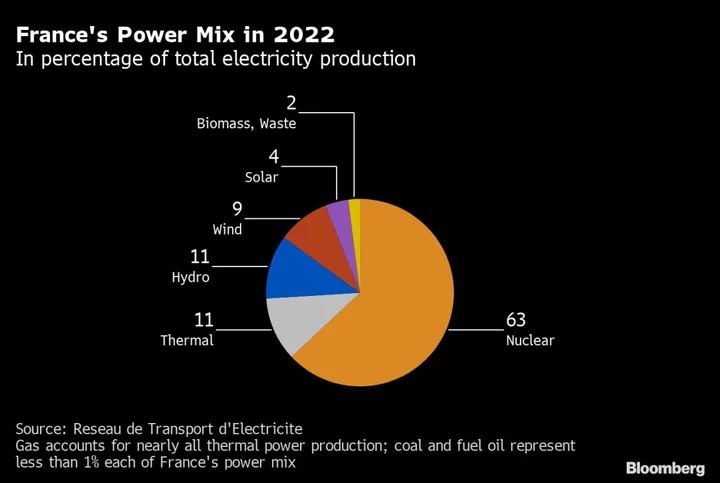
EU Clinches Power Market Deal After Nuclear Spat Settled
European Union countries reached an agreement on an overhaul of the bloc’s power market after Germany and France
1970-01-01 08:00
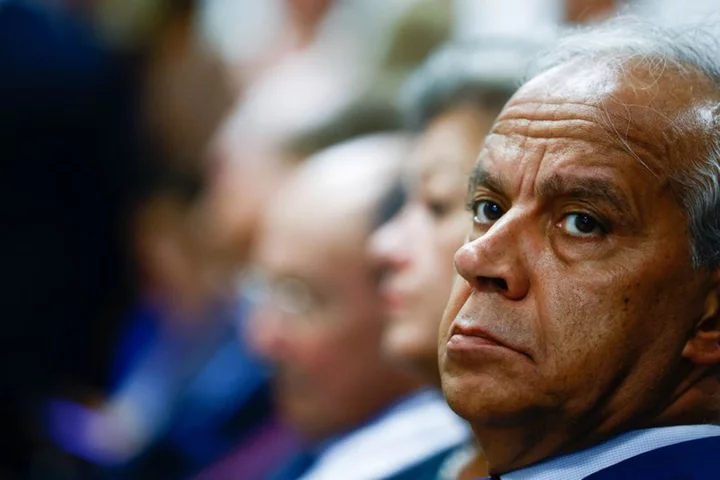
Italy urges EU to help Tunisia to stem irregular migration
By Angelo Amante ROME It is essential for the European Union to help Tunisia stop migrant boat departures,
1970-01-01 08:00

Spain Starts Trial Into Iberdrola’s Alleged Price Manipulation
A Spanish court is set to probe allegations that a unit of Iberdrola SA and and four of
1970-01-01 08:00
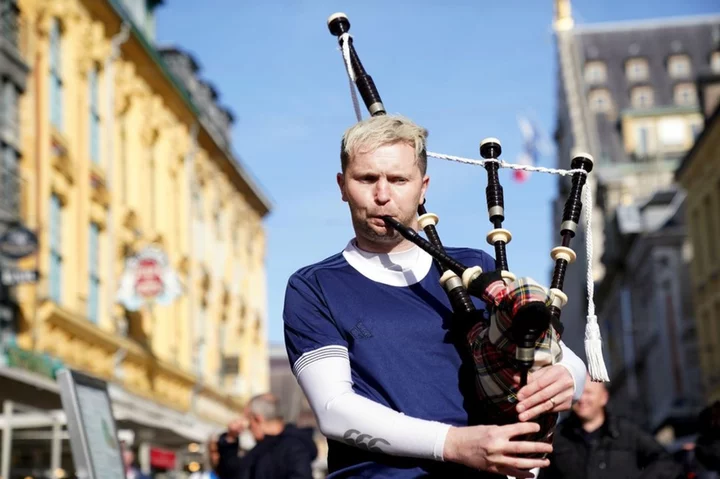
Brussels shooting: Security doubled for France v Scotland friendly
The French interior minister says it comes after two Swedish nationals were shot dead in Brussels.
1970-01-01 08:00
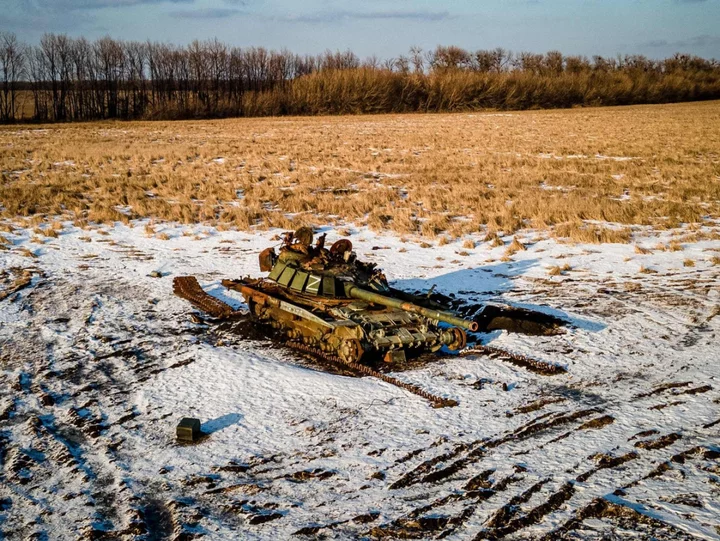
Experts reveal what the winter will bring for the Ukraine war – and why Putin will be banking on Trump
The Ukraine war may remain a “stalemate” throughout 2024, military experts have told The Independent, as hopes fade for a major breakthrough in this year’s counteroffensive against Russia. Delays in Western military aid handed Moscow time to build heavily fortified defences, which have largely held up against months of intense assaults – and constraints in ammunition and weaponry now mean both armies may struggle to sustain the current pace of the war, some analysts believe. With the prospect of a Middle East conflict likely to further stretch Washington – Ukraine’s largest backer – ahead of a US presidential election in November 2024, Vladimir Putin’s strategy may now be to preserve the current state of the frontline and “wait it out”, Western experts say. With just weeks likely left before seasonal weather changes dampen offensive efforts in Ukraine, Dr Patrick Bury of the University of Bath said: “There hasn’t been a breakthrough, there’s been tactical gains, low-level operational gains – but not strategic.” “What this summer has shown is that [Ukraine] can fight at company level [of around 100 soldiers] but when you go the next level up to the battalion, they just don’t really have the coordinated experience to fight with all the moving parts”, said Dr Bury, a former Nato analyst and British Army captain. While the US is due to start providing F-16 fighter jets next year, the sophistication of the Russian air force means Ukraine will still struggle to achieve air superiority, “and you need air superiority really to be able to free up the chance of large-scale manoeuvre”, he added. Therefore “unless there’s significant widespread packages of training, new weapons and equipment”, Dr Bury said, “it’s looking like 2024 is a bit of a stalemate” – with any significant shifts instead likely to take place off the battlefield. Agreeing that “we’re [already] seeing a stalemate now”, Dr Frank Ledwidge – a former military intelligence officer, now at the University of Portsmouth – questioned “whether any tactics would have worked against defenders who [Ukraine] didn’t outnumber three to one”. “In the most basic military algorithms, you need an attack ratio of three [troops] to one, and the Ukrainians don’t have anything like that,” he said. “So barring any significant change in that force ratio there’s no reason really now to assume that future operations will be any different.” Warning that there are “no game changers”, including F-16s, Dr Ledwidge likened the situation to the Western Front in 1917, adding: “Breakthroughs were made eventually in the First World War, but only when the Americans came in with two million soldiers.” He added: “Unless somebody has the moral courage to say ‘Ukraine is highly unlikely to retake all its land’, then this will go on.” James Nixey, director of the Chatham House think-tank’s Russia and Eurasia programme, said: “It does seem as though we’re heading towards a battle for Crimea.” While noting that Russia is “going all-in” by putting its economy and society “on a near at total war footing”, which may help address ammunition shortages, Mr Nixey said he agreed that significant changes to the situation in Ukraine will now likely “happen off field”. “Putin is banking almost everything on a Trump return,” he said, adding that the conflict emerging in Gaza and Israel – and threatening to become a wider Middle East conflict drawing in Hezbollah and Iran – means that “attention, resources and funding will be diverted now” from Ukraine. “While it’s true that the US army prepares for to simultaneous separate wars, the reality is that the pie is likely to be smaller – even if Ukraine funding is tagged onto an Israel assistance bid,” said Mr Nixey. US president Joe Biden, who recently suffered a setback in securing Congress’s approval for Ukraine aid, rejected that prospect this week, telling CBS News: “We’re the United States of America, for God’s sake. The most powerful nation in the history of the world. “We can take care of both of these and still maintain our overall international defence. We have the capacity to do this and we have an obligation … If we don’t, who does?” But agreeing that a second conflict has “certainly got the potential for stretching the US”, Dr Bury and Dr Ledwidge both believe a military stalemate in Ukraine is therefore “very satisfactory” to the Russian president. “Putin’s strategy is just to wait it out,” said Dr Bury. “Putin’s played a masterstroke here – he’s basically used a nuclear threat to slow down and salami-slice the aid to Ukraine. That’s the effect it’s had.” “Those threats were enough to make the Biden administration and the Germans were very wary” of supplying F-16s, tanks and long-range weaponry, he noted, adding: “We got there in the end, but it took time. “And that, it turned out, gave Russia time to build very good defensive lines and make their problem easier and the Ukrainians’ much harder.” Read More Russia to return four Ukrainian children to their families as part of Qatari-brokered deal Putin arrives in China on rare trip abroad to meet ‘dear friend’ Xi Jinping As the conflict in Israel rages on, the world must not forget about Ukraine ‘My body was burning’: Russian journalist’s horror journey in grips of suspected poisoning
1970-01-01 08:00
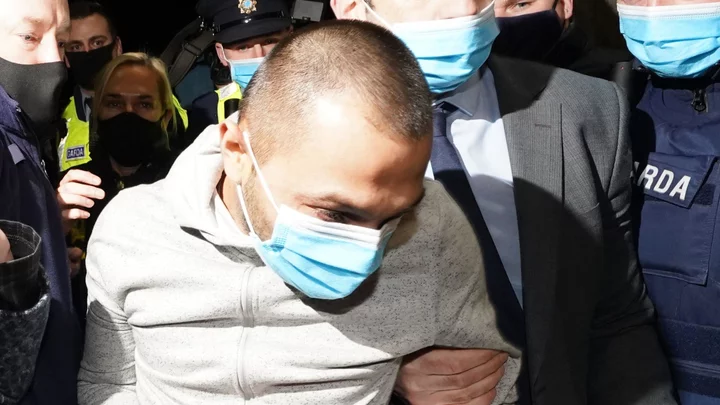
Ashling Murphy accused 'confessed', court told
Prosecutors say the schoolteacher was stabbed 11 times in the neck by Jozef Puska in County Offaly.
1970-01-01 08:00
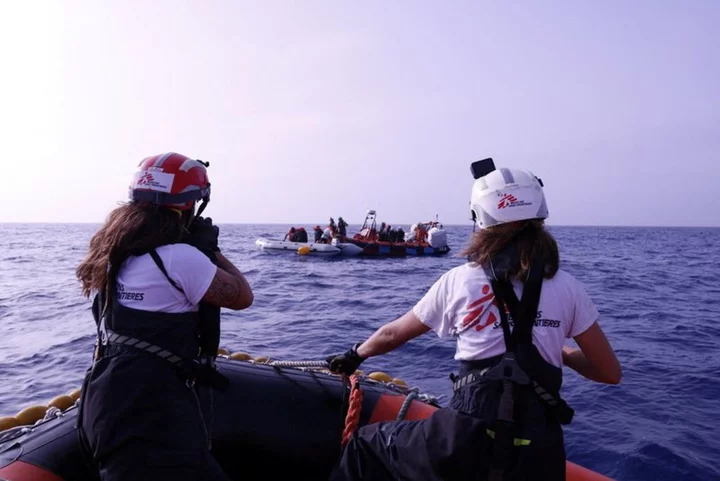
Migrant’s drowning in Mediterranean prompts criticism of Malta's rescue policies
A passenger on a rubber boat adrift in the Mediterranean Sea called a rescue hotline on June 23
1970-01-01 08:00
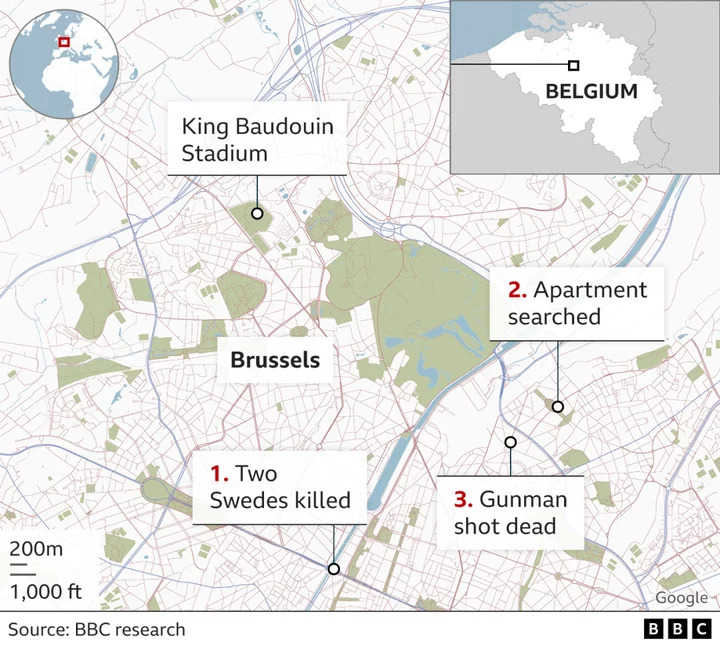
Brussels shooting: Police shoot dead attacker who killed Swedes
Two died and one person was injured in the Monday attack coinciding with a Sweden football match.
1970-01-01 08:00
